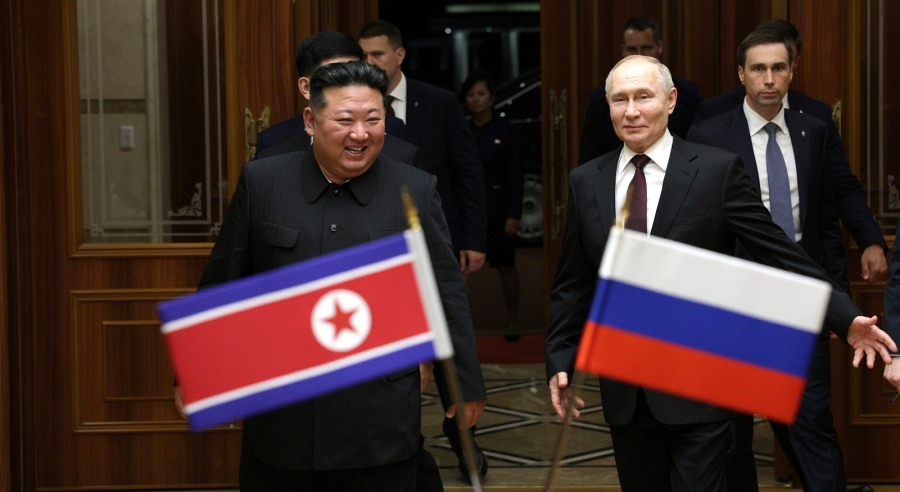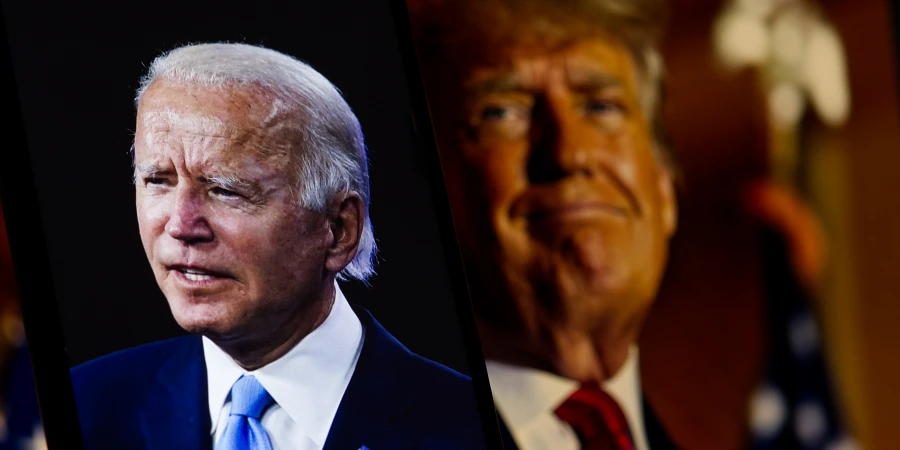The presidential debate between Joe Biden and Donald Trump was historic, marking the first time an incumbent faced a former president. Trump was typically self-congratulatory, ignoring facts, while Biden appeared confused, often stuttering and mumbling. This was not how the leader of the world’s strongest superpower should appear.
Biden, as the incumbent president, hasn’t faced significant competition within his party for re-election. The lack of prominent candidates and especially an embarrassingly weak vice president made Biden the best candidate the party has to offer. Thus, despite appearing confused in several appearances and losing his train of thought, Democrats hoped that the fear of another Trump term would be enough to carry Biden to 270 electors in November.
After the debate, many in the party and media have called on Biden to step down – “I watched and cried,” wrote Thomas Friedman, one of America’s leading liberal journalists considered closest to Biden. Biden’s poor performance is not the Democratic Party’s only problem – the convention on August 20th is expected to be the peak of pro-Hamas and anti-Israel protests in the US. Many reports warn of violent riots not seen since the 1968 Democratic Party convention, which was held against the backdrop of the Vietnam War and the assassinations of Martin Luther King Jr. and Robert Kennedy.
The Republican Party will convene earlier, in mid-July, and the situation there is much better compared to the Democrats but also not optimal – Trump has a promising pool of candidates to choose a running mate from, and most of them are expected to be more friendly to Israel. On the other hand, Trump himself is preoccupied with his never-ending legal trouble, and one climax is expected on July 11th, days before the party convention, when the verdict in Trump’s hush money trial with porn star Stormy Daniels will be heard.
As of now, it seems there’s a chance that at least one of the two candidates, and possibly both, won’t be on the ticket in November. Either way, we’re in for long months where we’ll hear more about the candidates’ troubles and less about the substance, worldviews, and future plans for the world’s greatest superpower.
The Enemies Are Not Waiting
While America struggles to project strength, the past year has been marked by anti-American and anti-Western developments in every arena – in Eastern Europe, Russia has managed to thwart counterattacks and after a difficult period on the battlefield, has managed to advance westward in some areas, despite America’s best efforts to reinforce the Ukraine’s army. The Russian army is receiving drone supplies from Iran, and earlier this month Putin visited North Korea for the first time in 24 years. During the visit, a defense agreement was signed between the two countries. Shortly thereafter, it was reported that North Korea would send engineering forces to help the Russians establish themselves in the territories Russia captured from Ukraine.
In East Asia, China has intensified its tone and actions against Taiwan – military maneuvers that are becoming more and more threatening and statements by President Xi that Taiwan is part of China are raising concerns in Taipei. An invasion of Taiwan would be a watershed moment in China’s history. After four decades of accelerated peaceful growth and cultivating an image of a non-threatening power, a full-scale Chinese attack would definitively establish the recognition that we are in the midst of World War III, invite harsh countermeasures from the US and the European Union, lead to disruption of world trade and economic crisis, and push the countries of the new axis – China, Russia, Iran and North Korea – to cooperate and create a clear bipolar dynamic.
In our region, Iran is demonstrating unprecedented confidence – the bloodthirsty terrorists who invaded Israel on October 7th were equipped with the newest Iranian weapons, and the Hezbollah’s intelligence gathering, rocket, and drone arrays are mostly Iranian as well. The Houthis in Yemen who are disrupting ship traffic in the Red Sea, and the Shiite militias in Iraq and Syria, who occasionally fire at Israel as well as American forces, are also funded and directed from Tehran. This is how Iran orchestrates a proxy network that draws Israeli blood while Iran escapes penalty.
Israel vs. Hezbollah
These global and regional power struggles also impact the standoff between Israel and Hezbollah, and the chances of an all-out war. Hezbollah as an organization has long since ceased to be just the defender of Shiites in Lebanon – to a large extent, it is the “crown jewel” of Soleimani’s encirclement doctrine – the strongest organization among all those proxies Iran has built in the region to threaten Israel.
It’s no coincidence that Israel has been reluctant to wage a full-scale war with Hezbollah despite months of escalating fire exchange. The vast amounts of weapons in Hezbollah’s possession will likely lead to casualties and destruction in the Israeli home front on unprecedented scale. On top of which, the other Iranian proxies will likely jump in and attack Israel, and Iran and Syria might join as well. They will face a worn-out IDF from 9 months of war in Gaza, with shaken self-confidence after October 7th and a political and military leadership that is controversial domestically, to say the least. An Israeli failure would finally erase the remnants of Israeli deterrence, which is vital for maintaining regional order.

On the other hand, Israel has forces and tools of war that could deal a mortal blow to Hezbollah and Lebanon as a country. Hezbollah’s defeat would come at a high cost to Iran – Hezbollah constitutes a first line of defense against Israel, so a severe blow to Hezbollah would not only undermine the entire regional system set up by the Iranians but also significantly damage Iranian deterrence and its ability to directly and immediately threaten Israel.
Without its defense belt, Iran would be left exposed to Israel. The failed Iranian attack on April 14th and Israel’s surgical counterattack on one of the Iranian air defense systems proved that Israel has the ability to attack in Iran, and also defend from Iranian attacks, while Iran has limited capabilities in both. In other words – in a direct confrontation between Iran and Israel, the balance clearly tilts in Israel’s favor, and therefore the Iranians will try to avoid such a scenario.
Is Now the Time?
In light of all these developments, two things are becoming clear. First: if the anti-American countries want to make strategic moves that will strengthen their position, now is the time. In the case of Israel versus Hezbollah, the voices rising from Israel to rehabilitate the army and prepare for a year or two before going to war, make it clear to Nasrallah and the Iranians that if a confrontation with Israel is unavoidable, it might be preferable for the Iranian axis to have this confrontation now and not in two years when Israel will be better prepared.
In the other theaters, the anti-West forces realize the US is probably weaker than it might be at any point in the foreseeable future – the American president is not at his best, American society is like a herd without a shepherd, and American foreign involvement is already over its head in Eastern Europe and the Middle East. If China, for example, really wants to realize its threat and invade Taiwan, despite all the prices it will have to pay, it’s doubtful it will find a better time to do so than in the coming year.

For the same reasons, Iran’s breakthrough to a military nuclear capability, if it hasn’t done so already, seems closer than ever. On one hand, declaring a military nuclear capability would isolate Iran from the Western world and exact a heavy economic price. Iran is not North Korea and it’s doubtful the regime would survive a total economic collapse. On the other hand, with Russia occupying Ukraine and China possibly engaged in Taiwan, it’s hard to see how the Security Council would manage to pass any resolution against Iran.
The tightening of economic ties between China, Russia and Iran might be enough to keep all three regimes stable enough until a new world order emerges. Therefore, if Iran ever wanted to break through to a military nuclear capability and assemble a bomb but was afraid of international repercussions and the price it would be made to pay, it seem these days the price would be much lower than ever before.
The second thing that’s becoming clear is that if America is looking for a way to turn things around globally, the middle east might be the best place to start. This could play to Israel’s advantage. In a meeting with a delegation of retired generals and admirals held yesterday, Prime Minister Netanyahu declared that Israel would get rid of Hamas but that the main threat is Iran who is “on its way to conquer the Middle East, including Saudi Arabia” and that “they want to take down Jordan as well”. These threats reflect the mood in Jerusalem and probably the reality as well – Israel may manage to deal with the terrorist organizations in Gaza and Lebanon, but when it comes to the regional order, it would be best for Israel if the US throws its full weight into the conflict and lead a pro-western coalition against Iran.
President Biden has shown cognitive and leadership decline in the past year. His last speech where he appeared presidential and focused was probably on October 10th, three days after the Hamas attack. It was the most pro-Israeli and pro-Jewish speech by a foreign leader ever, a speech worth teaching in every school in Israel. The massive shipment of ammunition is also not to be taken for granted. However, in the long war of attrition we are in, the peak is still ahead of us, and it doesn’t only concern Israel but the entire free world, which is reaching it from a position of inferiority.
It is pretty clear that we are all living in decisive years where the fate of the global and regional order hangs in the balance. In this context, Israel has often been described by many as “the first line of defense of the free world”. For this line of defense to remain stable, and for the free world to succeed in repelling the threats it faces, the leader of the free world needs, well, to lead it. For Americans, the first step to this will be to elect a president and a new administration who will present a clear and unequivocal path that will rehabilitate US domestic stability and foreign dominance and lead the struggle against all opposing forces.





